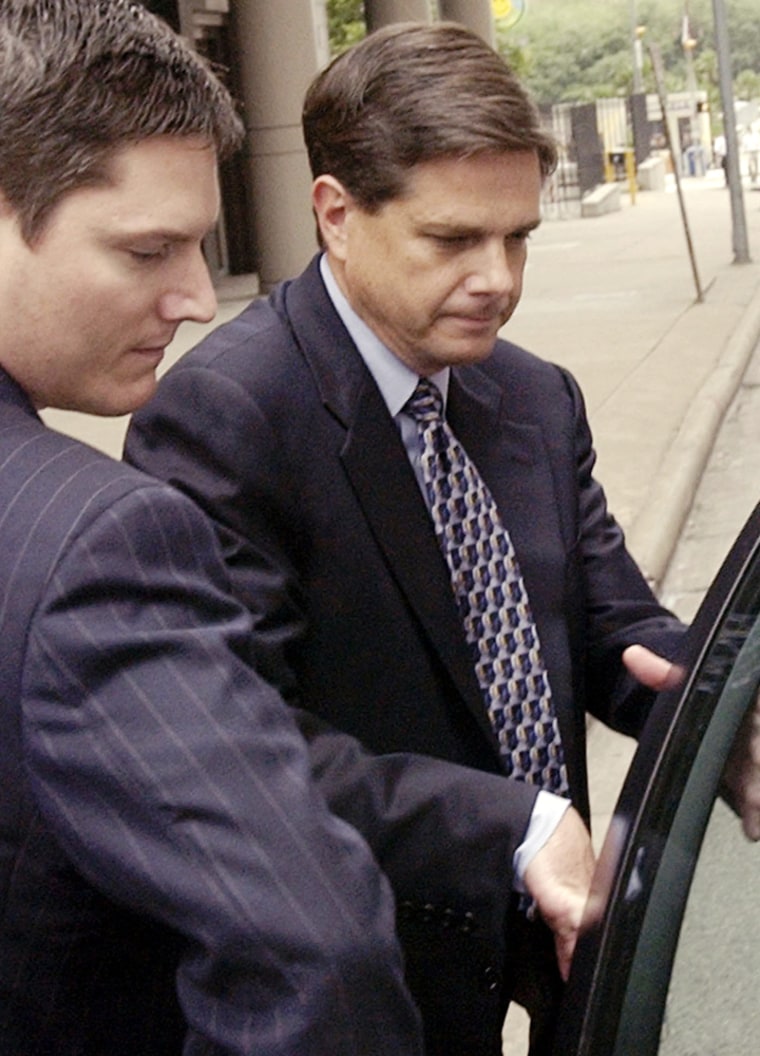The next trial to emerge from the Enron scandal involves what became a habit at the company once lauded for innovation: Big talk about a new business that went bust.
Three former executives are charged with making false claims about the capabilities of Enron’s broadband network to boost the company’s stock so they could get rich by selling inflated shares. Two are accused of faking earnings for the unit to minimize its publicly reported losses. Jury selection begins Monday in their trial.
None of the defendants are marquee names in the Enron Corp. saga, but the outcome could be significant to former Enron CEO Jeffrey Skilling. He faces more than 30 charges in a separate case that alleges he knew the network didn’t live up to the hype when he promoted it to Wall Street.
‘Different subplots’
“Both sides will parade a series of experts to say the system functioned as it was being billed while others will say, ‘no, it was a pie-in-the-sky, and investors were being sold a bill of goods at that point,’ ” said Philip Hilder, a former federal prosecutor in Houston who represents Enron-related clients.
“There are going to be different subplots going on simultaneously, and it may be difficult for the jury to wade through everything,” Hilder said.
Enron’s Internet venture started as a communications unit of a Northwestern utility the company bought in 1997. Two years later several Enron executives, including three of the broadband defendants, touted the unit’s broadband network as “intelligent,” with capabilities that would slay competitors and bring in billions in revenues. Dazzled analysts spread the word and Enron’s stock price shot up.
Enron also struck an exclusive video-on-demand deal with Blockbuster Inc. to stream movies over its broadband network.
Enron Broadband Services, like failed ventures into retail energy and water trading, never made a profit. The Blockbuster deal flopped. The network never lived up to its hype.
Prosecutors allege scam
The federal government says it was more than tech bubble enthusiasm gone awry. Prosecutors aim to convince jurors that the executives were running a scam to get rich and minimize losses.
David Angeli, who represents former broadband unit CEO Joseph Hirko, said the defense plans to show the executives’ statements about the network were true and had no effect on the stock market.
“We believe the stock price went up for reasons completely different than as alleged by the government,” Angeli said.
Daniel Petrocelli, Skilling’s lead trial lawyer, declined to comment.
Of the broadband defendants, only Hirko was in the upper echelon of Enron’s business unit executives, having helped run Enron Broadband Services in its early days. Rex Shelby and Scott Yeager were technical whizzes focused on software or strategy. Kevin Howard and Michael Krautz focused on finances and accounting.
CEO v. CEO
In a twist to the usual chain of employees testifying against former bosses, two of the broadband unit’s former top executives — CEO Kenneth Rice and Kevin Hannon, former chief operating officer — are expected to testify against Hirko and the others.
Hirko and Shelby each face more than 20 counts of money laundering, fraud, conspiracy and insider trading. Yeager faces more than 100 of the same counts, most of those money laundering.
Rice and Hannon faced similar charges, but Rice pleaded guilty to securities fraud in July, and Hannon pleaded guilty to conspiracy in August.
Krautz and Howard have each pleaded innocent to 17 counts of fraud and conspiracy for allegedly faking $111 million in earnings in late 2000 and early 2001 from the failed Blockbuster deal.
Hirko resigned from Enron in 2000, and Rice and Hannon resigned about a year later — all before the company crashed in scandal in December 2001. Howard and Krautz survived layoffs that left thousands jobless when Enron went bankrupt and kept jobs in other departments. They were ousted hours after they were charged in March 2003.
